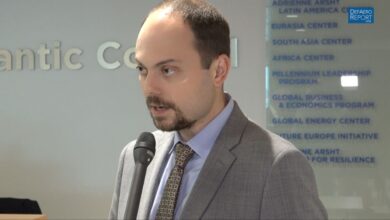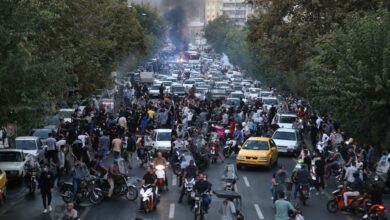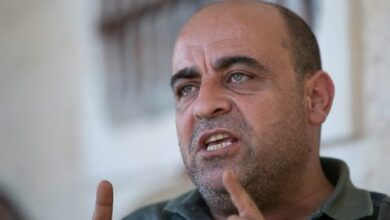Free elections this year could set Egypt on a new democratic course, but the government must also end emergency law and military trials for civilians, the head of Amnesty International has said.
Egyptian elections were marred for decades by thuggery, censored media coverage and ballot stuffing that allowed former President Hosni Mubarak's National Democratic Party (NDP) to keep a firm grip on power.
"I don't think Egypt will go back… The elections in the past were a joke," Salil Shetty told Reuters in an interview on Thursday. "But we are worried that there is extensive use of military trials and that we still have emergency laws and press codes."
"These are Mubarak laws and we don't need them. If it's a new Egypt, we need to scrap these things."
The emergency law gives security officials broad powers to arrest and incarcerate civilians.
Amnesty documented brutal police treatment of detainees during the Mubarak era, including electric shocks, suspension by the limbs for hours, sleep deprivation and death threats.
Democracy campaigners say the fate of activist Khaled Said, who witnesses said police officers beat to death outside an Alexandria web cafe in 2010, ignited public indignation and fueled the uprising that ended Mubarak's three-decade rule.
Egypt's military rulers have said they will scrap the emergency law before September parliamentary elections. A presidential election is due before the end of the year.
Shetty said the government had enough power to ensure public security without emergency law and said he feared it could be used in future to distort the democratic process.
"The argument that we get from the government is 'after all it's transitional' and 'after all we don't use emergency laws in any way'. But if you don't use it why do you need it?"
Shetty praised the military rulers for dissolving the hated state security apparatus in March, but criticized them for continued violence against peaceful demonstrators.
An Amnesty report cited witnesses saying the army conducted forced virginity tests on woman protesters after an International Women's Day march on March 8.
Military officials have denied that, and said the army does not use excessive force against peaceful protesters.
Amnesty has documented military trials of 10,000 people in the last four months and said the trials, conducted in private, are unfair, break international law and corrode Egypt's criminal justice system.
"The military cannot be judge, prosecutor and executioner in post-uprising Egypt," Amnesty said in a May report after a 17-year-old boy accused of rape was sentenced to death by hanging.
Shetty said Egypt could not claim to be truly reformed unless poverty and social inequality are dealt with.
"Little did we know that the word on the Arab street would be 'Karama' or dignity," Shetta said. "It was the poorest of people, those who didn't know when their next meal was coming — they were the ones who had the courage for change."
During his visit, Shetty visited the Cairo slum of Manshiet Nasser, widely known as Garbage City, whose inhabitants rely on recycling rubbish collected across Africa's biggest city.
He said they had appealed to the interim government for better housing for months, in vain.
"Egypt is not a poor country. It is a middle-income country with significant aid from the US. The government has to show some early signs that they are dealing with issues of poverty and inequality," Shetty said.
The interim government announced plans this month to boost spending on subsidies on staples and raise state salaries. It has also pledged to lift the minimum monthly wage to 1,200 Egyptian pounds (US$201.3) within five years from 700 pounds now.
"A minimum wage is good … but 40 percent of Egyptians live in informal settlements," said Shetty.




